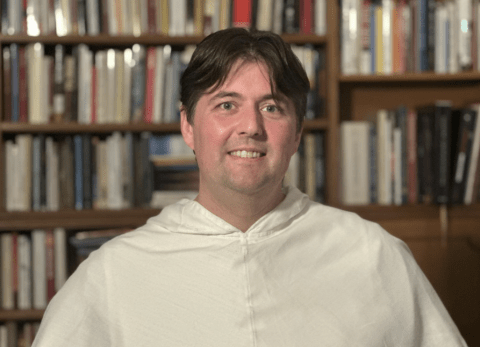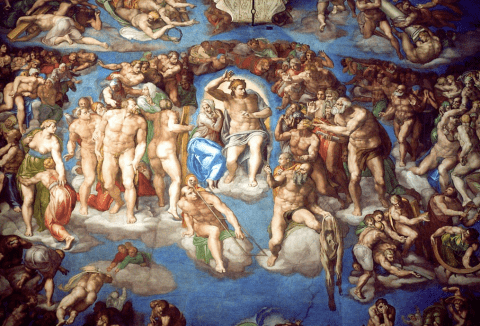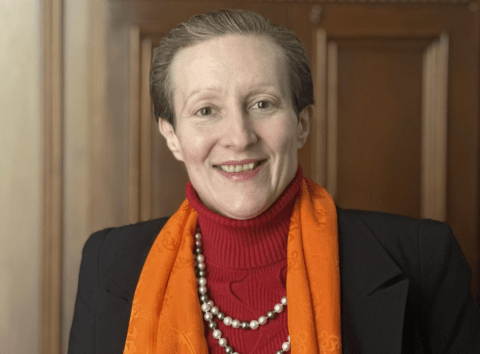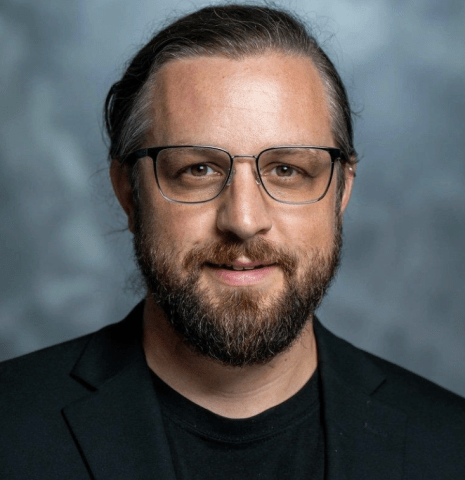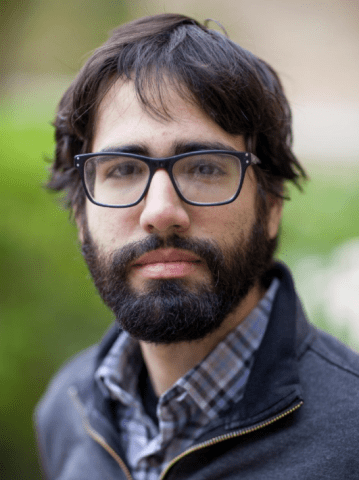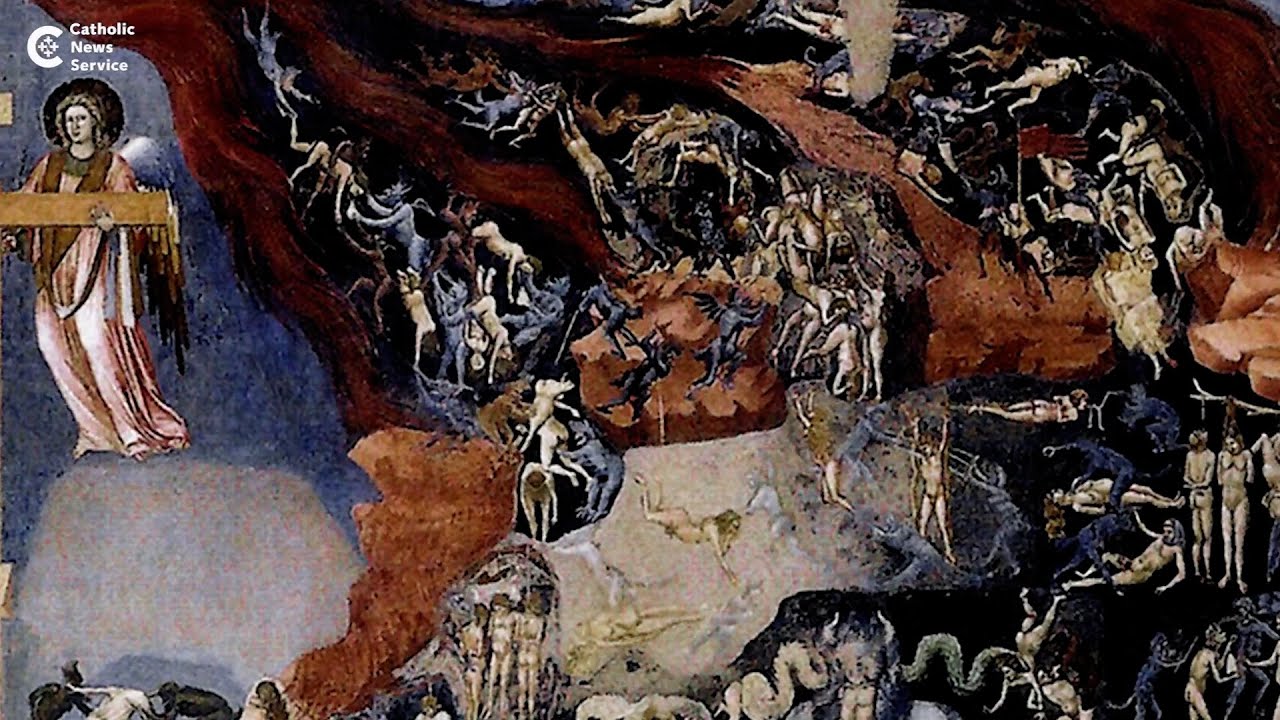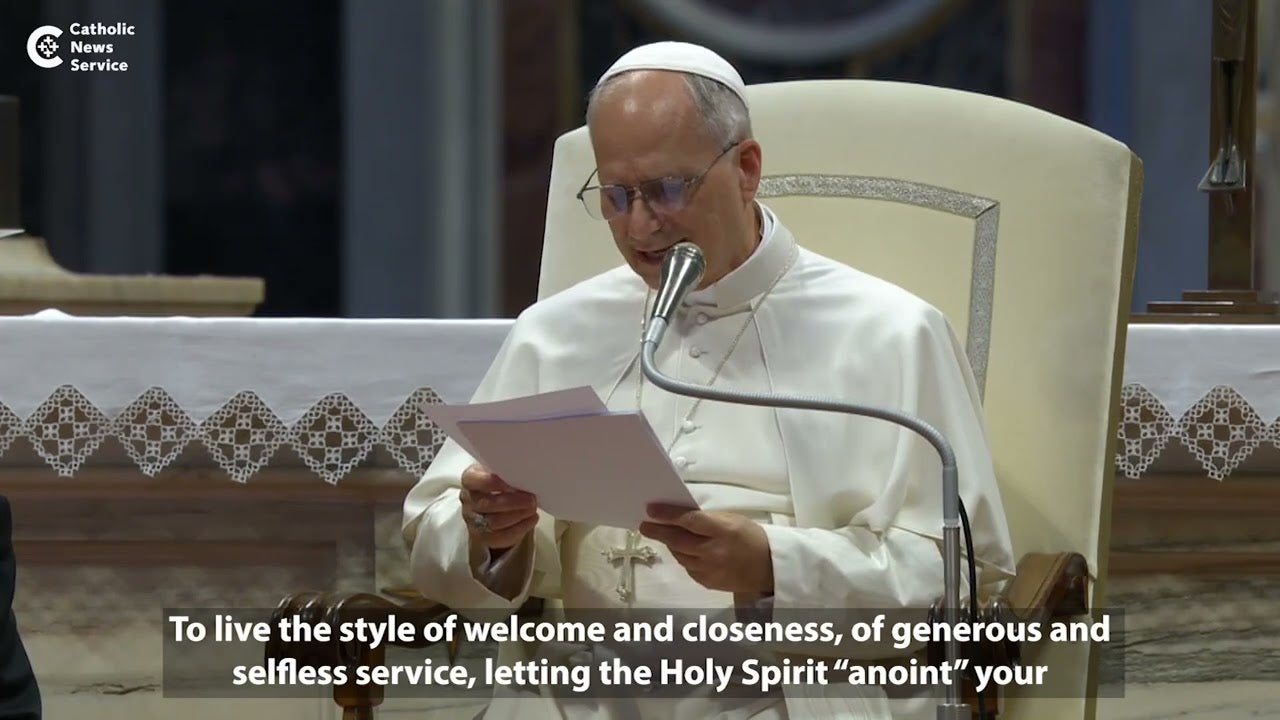Browsing News Entries
Cast and crew of 'The Chosen' host premiere screening in Vatican
Posted on 06/24/2025 09:32 AM ()
Members of 'The Chosen' TV series travel to Rome to discuss the importance of the newest season and its role in connecting viewers to Jesus.
Raising hell: Catholics debate church teaching on eternal punishment
Posted on 06/24/2025 08:30 AM (USCCB News)
ROME (CNS) -- Sent by his religious order to Hong Kong to share the Gospel in Asia, one Catholic priest's missionary work is raising hell -- but not with the Chinese Communist Party.
"Not a Hope in Hell" is Dominican Father James Dominic Rooney's 2025 book-length defense of eternal damnation -- a Catholic doctrine he says is increasingly debated in academic circles, and one he's frequently invited to speak on across Asia.
"Just a couple days ago I was in Singapore to discuss hell," he told Catholic News Service June 3, adding that he receives several hell-related invitations each month, ranging from in-person talks across Asia to podcast interviews and article contributions.
People in Asia "think it's a fascinating discussion," he said, noting that atheists in particular are intrigued by the challenge of reconciling hell with Christian teachings on God's love and mercy.
As one of Christianity's most vividly imagined teachings -- portrayed in foreboding scenes from Michelangelo's fresco "The Last Judgment" to John Milton's poem "Paradise Lost" -- hell, Father Rooney said, remains a subject of both perennial and pressing debate.
"I have a few jihads that I'm on, and this is one of them," he said.
He is not alone in seeing the doctrine of hell as under siege today. In March, Msgr. Charles Pope released his own book on the subject -- also with a tongue-in-cheek title: "The Hell There Is: An Exploration of an Often-Rejected Doctrine of the Church."
"Only 17% of Catholics go to Mass now in (the United States), and so we've got to recover some sense of urgency, which is lacking today," Msgr. Pope told CNS, explaining his motive for writing the book.
Msgr. Pope, a popular lecturer and pastor of Holy Comforter-St. Cyprian Catholic Church in Washington, was interviewed on EWTN in April and expressed his regret over a comment made by Pope Francis in 2024: "This isn't dogma, just my thought: I like to think of hell as being empty. I hope it is."
The comment, made on Italian television, was met with applause. A CNS social media post sharing the late pope's words has been viewed more than 42 million times.
"I think that it's unfortunate," Msgr. Pope said. "Even when they are clear, they are just expressing an opinion. I think popes need to be very careful about what they say, because it carries authority whether they want to admit it or not."
While the Catechism of the Catholic Church affirms the existence of hell and refers to it as an "eternal fire" of everlasting punishment, some Catholic theologians are renewing interest in a minority view held by certain early Church Fathers: that, in the end, all will be saved and reunited with God -- a universalism they argue is more consistent with faith in an all-loving, all-powerful God.
For example, patristics scholar Ilaria Ramelli, in her 900-page work "The Christian Doctrine of Apokatastasis" (from the Greek word for "restoration"), argues that saints such as Gregory of Nyssa, Isaac the Syrian and Maximus the Confessor were convinced that all people ultimately would be saved.
This view is often described as "confident" or "hard" universalism, distinguishing it from the position of figures like Swiss Father Hans Urs von Balthasar and, more recently, Bishop Robert Barron, who argue that one may hope -- but cannot know -- that all will be saved.
Jordan Daniel Wood, a theologian at Belmont University in Nashville, defended hard universalism in a livestreamed debate at The Catholic University of America in 2024.
Then, in a February 2025 lecture to students and seminarians at Mount St. Mary’s University -- the oldest Catholic seminary in the United States -- he argued that the principles of doctrinal development could allow for a radical revision of hell, making it temporary and its punishments remedial.
Critics say that making hell temporary would lessen the gravity of human freedom, threaten the missionary impulse, and contradict Christ's teaching on judgment, but Wood demurs.
"I think it could do nothing but good for the church to come to a clarity, to hold out the Gospel and put its money where its mouth is, so to speak, and say: 'The only reason why we preach the Gospel to you is because we really believe it will fulfill you and satisfy you in a way nothing else can,'" Wood said.
"There's no shadow of hell whose gravity God himself might not be able to compete with," he said.
Wood is writing a book defending universalism with theologian Roberto De La Noval of Boston College.
"We really want to engage in a good faith dialogue with those who really also want to make the best sense of the tradition that we can, and ask about where it might be going," De La Noval said.
De La Noval and Wood say the current iteration of the debate began with the 2019 publication of Eastern Orthodox theologian David Bentley Hart's "That All Shall Be Saved: Heaven, Hell, and Universal Salvation," which made a case for universalism.
"Part of the reason it was a watershed was it was able to put into words what a lot of people had felt about their experience of growing up with the doctrine of hell," De La Noval said.
"What David Hart's book was able to do was to crystallize a lot of those felt tensions and give them a logical exposition, a scriptural exposition, and a philosophical and theological exposition," he said.
For his part, Hart said he thinks the debate will go on for some time.
"Right now, the debate has picked up," Hart said. "I like to think that my book, slim though it was, added some dialectical tools to the kit."
Love with Christ's compassionate heart, Pope Leo tells seminarians
Posted on 06/24/2025 08:30 AM (USCCB News)
VATICAN CITY (CNS) -- Do not be afraid to grapple with your innermost thoughts, feelings and problems so that your heart can be filled with God and his compassion, Pope Leo XIV told seminarians.
Also remember to listen to the "voices" of nature, music, poetry, the humanities and the cries of the poor, the oppressed and people who are looking for the meaning of life, he told them.
Learn "to live the style of welcome and closeness, of generous and selfless service, letting the Holy Spirit 'anoint' your humanity even before ordination," the pope said in a reflection June 24.
The pope led a mediation with hundreds of seminarians and those involved in priestly formation from around the world in St. Peter's Basilica as part of the Jubilee of Seminarians.
When the pope arrived and began walking down the central aisle, the men cheered enthusiastically, ending with a hand-clap chant of "Papa Leone" or "Pope Leo" in Italian.
He thanked them for their joy and enthusiasm, "because with your energy you fuel the flame of hope in the life of the church."
Speaking in Italian, Pope Leo punctuated a few key points by repeating them in Spanish, such as thanking them for having accepted God's call to pursue the priesthood and encouraging them to "be brave and have no fear!"
Their journey is saying "yes" with "humility and courage" to Christ's invitation to become "meek and strong" in proclaiming the Gospel and to become "servants of a church that is open and a missionary church on the move."
"Jesus, you know, calls you first and foremost to an experience of friendship with him and with your fellow priests" and to deepen this experience in all aspects of life, he said.
"For there is nothing about you that must be discarded, but everything is to be taken up and transfigured in the logic of the grain of wheat to become happy persons and priests, 'bridges' and not obstacles to the encounter with Christ for all who approach you," the pope said. "Yes, he must increase and we must decrease, so that we can be shepherds according to his heart."
Pope Leo spent a large part of his reflection on the importance of caring for one's heart -- the inner workings, thoughts and feelings one keeps inside -- because that is "where God makes his voice heard and where all the most profound decisions are made."
"As Christ loved with the heart of man, you are called to love with the heart of Christ," he said.
The heart must be continuously converted so that one's whole being "smells of the Gospel," he said.
Exploring deep inside one's heart, where God has always left his mark, can sometimes cause fear, he said, "because there are also wounds in there."
"Do not be afraid to take care of them (these wounds), let yourself get help, because it is precisely from those wounds that the ability to stand with those who suffer will emerge," he said.
"If you learn to know your heart, you will be increasingly more authentic and will not need to put masks on," he said.
The best way to enter into one's inner being is through prayer, he said, which is increasingly difficult in such a "hyper-connected" age, where it is hard to find "silence and solitude."
"Without the encounter with him, we cannot even truly know ourselves," he said.
Pope Leo invited the seminarians to "invoke the Holy Spirit frequently, that he may mold in you a docile heart, capable of grasping God's presence, even as you listen to the voices of nature and art, poetry, literature and music, as well as the humanities."
As they delve into their theological studies, "know how to also listen with an open mind and heart to the voices of culture, such as the recent challenges of artificial intelligence and social media," he told them.
"Above all, as Jesus did, know how to listen to the often silent cry of the little ones, the poor and the oppressed, and the many people, especially young people, who seek meaning for their lives," he added.
"Have a meek and humble heart like that of Jesus," he said. "May you take on the sentiments of Christ to grow in human maturity, especially affective and relational" maturity.
It is important and necessary "to focus a lot on human maturity, rejecting every kind of masking and hypocrisy," he said.
"Keeping our gaze on Jesus, we must learn to give a name and voice even to sadness, fear, anguish, indignation, bringing everything into relationship with God," he said. "Crises, limitations and frailties are not to be hidden; rather, they are opportunities for grace and a paschal experience."
"In a world where ingratitude and thirst for power often dominate, where the logic of exclusion can prevail, you are called to witness to the gratitude and gratuitousness of Christ, the exultation and joy, the tenderness and mercy of his heart," Pope Leo said.
Pope Leo XIV sends telegram to victims of Damascus bombing
Posted on 06/24/2025 07:50 AM ()
In a telegram on June 24, the Pope joins his voice to that of others offering their condolences and prayers for the victims and their families of the suicide bombing at St. Elias church in Damascus, Syris.
Pope Leo to Order of Malta: Thank you for bearing witness to God's love
Posted on 06/24/2025 06:00 AM ()
On the occasion of the Solemnity of Saint John the Baptist, Pope Leo XIV expresses his gratitude to the Sovereign Military Order of Malta for their concrete witness to God's love, and underscores the need to foster prayer and appropriate formation.
Pope Leo confirms election of Fr Francesco Ielpo as new Custos of the Holy Land
Posted on 06/24/2025 05:32 AM ()
Pope Leo XIV confirms the election of Fr Francesco as Custos of the Holy Land and Guardian of Mount Zion
Cabo Verde: The role of Catholic Social Teaching in development and Social Justice
Posted on 06/24/2025 04:43 AM ()
The Justice and Peace Commission of the Diocese of Santiago in Cabo Verde recently organised a conference in the city of Praia on the role of the Catholic Church in promoting peace, justice, and sustainable, balanced development in Cabo Verde.
Pope Leo to seminarians: Be passionate about priestly life
Posted on 06/24/2025 04:04 AM ()
Pope Leo XIV welcomes some 4000 seminarians and formators to the Vatican for their Jubilee, offering them a meditation on the Sacred Heart of Jesus and the priestly life.
Damascus church bombing: ‘There is no justification’
Posted on 06/24/2025 03:12 AM ()
Following the bombing of the St. Elias Church in Damascus, Syria, the Assembly of the Catholic Ordinaries in Holy Land issues a statement condemning the violence and calling for protection of Christians.
Holy See: 'Urgent moral responsibility to address poverty'
Posted on 06/24/2025 01:57 AM ()
During the UN Security Council's Open Debate on Poverty, Underdevelopment, and Conflict in New York, the Holy See 'underscores the urgent moral responsibility to address the root causes of poverty,' and reiterates concern regarding 'the ever-growing military expenditure, which diverts significant resources from investments in development sectors such as healthcare, education and infrastructure.'


